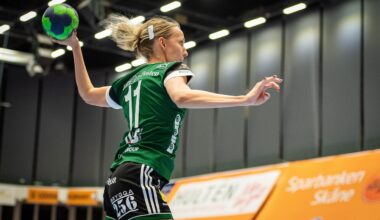Nutrition Tips to Complement Third Trimester Workouts
During the third trimester of pregnancy, maintaining a balanced diet is crucial to support both your health and your developing baby. Focus on incorporating a variety of nutrient-dense foods into your meals. These include leafy greens, whole grains, lean protein sources such as chicken, fish, and legumes, and healthy fats. Each of these food groups provides essential vitamins and minerals necessary for your baby’s growth. Try to consume small, frequent meals throughout the day to maintain energy levels and help manage any digestive discomfort. Staying hydrated is just as important, so aim for at least eight glasses of water a day. Herbal teas or fruit-infused water can add variety and flavor. Additionally, consider incorporating snacks that combine protein and carbohydrates, like nut butter on whole-grain toast. This will help sustain your energy during workouts. Listen to your body, and adjust portion sizes according to your activity level. Lastly, always consult with a healthcare provider or a nutritionist to customize a meal plan that meets your specific needs during this important period.
Incorporating Vitamins and Minerals into Your Diet
It’s essential to ensure you’re getting enough vitamins and minerals as you approach the end of your pregnancy. Key nutrients include folic acid, iron, calcium, vitamin D, and omega-3 fatty acids. Folate helps prevent neural tube defects, and you can find it in leafy greens, citrus fruits, and beans. Iron supports increased blood volume and prevents anemia, so include iron-rich foods like spinach, red meat, and fortified cereals. Calcium is vital for your baby’s bone development, with sources such as dairy products, almonds, and broccoli. Vitamin D can be obtained from sunlight and fortified foods, while omega-3 fatty acids support brain development and can be found in fatty fish, walnuts, and flaxseeds. To maximize nutrient absorption, pair iron-rich foods with vitamin C sources like oranges or bell peppers. A balanced prenatal vitamin can help fill any gaps, but it’s best to source nutrients primarily from food. Be mindful of portion sizes and try to integrate these essential nutrients into your meals naturally for better overall health.
Healthy Fats for Energy
Healthy fats play an essential role in providing energy during your third trimester workouts. Aim to incorporate sources of omega-3 and monounsaturated fats, which can be beneficial for both you and your baby. Foods rich in omega-3 fatty acids include salmon, walnuts, chia seeds, and flaxseed oil. These fats not only fuel your body but also support your child’s brain development. Monounsaturated fats can be found in avocados, olive oil, and nuts. These fats improve overall nutrition and help mitigate cravings, keeping you full longer. Create balanced meals that include a lean protein source, healthy fats, and complex carbohydrates to maintain energy levels. Additionally, consider snacking on nuts or seeds between meals to sustain energy. These options are nutrient-dense while also being easy to prepare, which can be crucial during tired days. Avoid trans fats found in fried foods and processed snacks, as they can cause more appetite fluctuations and affect your health negatively. Always consult your healthcare provider before making significant dietary changes.
Hydration and Its Importance
Staying hydrated is vital during your third trimester, especially while engaging in fitness routines. Proper hydration aids in digestion, nutrient absorption, and energy levels, which are essential as your body undergoes many changes. Aim to drink at least 2.3 liters of fluids daily, adjusting based on your activity levels. While water should be your go-to beverage, consider adding fresh fruit slices or a splash of lemon for a refreshing twist. Herbal teas or coconut water can also be excellent hydrating options. Remember that hydration needs may increase during exercise, so drink water before, during, and after your workouts. It’s helpful to carry a water bottle wherever you go as a reminder to drink frequently. Be cautious of sugary drinks, as they can spike energy levels quickly but lead to crashes later. Additionally, watch for signs of dehydration like dark urine or dry mouth. Maintaining hydration can also reduce swelling and comfort levels as you progress through your third trimester, ensuring you feel better during this crucial stage.
Post-Workout Nutrition
After completing your workout, post-nutrition becomes just as important as pre-workout meals. A blend of protein and carbohydrates can aid muscle recovery and replenish depleted energy. Opt for snacks that include both nutrients, such as a smoothie made with yogurt and fruit or a turkey sandwich on whole-grain bread. After intense workouts, consider protein-rich foods like Greek yogurt or a protein shake to help repair muscle tissue. It’s also essential to indulge in a snack within 30 to 60 minutes post-exercise, as this window is crucial for maximizing recovery. Remember that your body is still working hard during pregnancy, so making time for snacks is important. Whole foods are always ideal, but convenient options like energy bars can suffice when you’re on the go. Hydrate well post-workout with water or a hydration-enhanced beverage. Take note of how your body feels after specific foods and adjust to find what works best for you. Incorporating a consistent post-workout plan can significantly enhance your overall fitness journey.
Mindful Eating Practices
Practicing mindful eating can greatly benefit your nutrition. During the third trimester, focus on savoring every bite and being present while eating. This practice can help you recognize hunger and satiety signals, enhancing the enjoyment of food. Avoid distractions like watching TV or scrolling on your phone while eating. Instead, take time to appreciate the flavors, textures, and colors of your meal. Preparing meals at home not only allows you to control ingredients but also encourages mindfulness and creativity. Engaging in meal prep can help you plan good nutrition around your exercise routine. Consider setting aside a specific time each week to prepare healthy meals that you can conveniently access. This commitment can ensure you stick to your nutrition goals and simplify your daily routine. Additionally, keep a journal to track your meals and feelings surrounding food, which can help you understand eating patterns. Mindful eating can improve your relationship with food and make meals feel less like a chore. Being aware of what you eat will lead to better choices and can support overall well-being through your pregnancy.
Consulting Health Professionals
As you navigate nutrition and fitness during your third trimester, consulting health professionals can be invaluable. A registered dietitian specializing in prenatal nutrition can create a personalized eating plan that addresses your unique needs. This professional can help you understand how to incorporate specific nutrients and foods into your diet more effectively. Moreover, working with a fitness trainer experienced in prenatal exercise can ensure you are following safe and effective workouts tailored for this stage. They can suggest modifications as your body changes and help prevent injuries. Regular check-ups with your healthcare provider are also crucial during this time. They can assess your baby’s growth and monitor your overall health, making recommendations based on their observations. Seeking guidance helps ensure you understand the importance of nutrition and exercise while managing any discomforts experienced during your third trimester. Remember that every pregnancy is different, so personalized approaches bring the best outcomes. Establishing a support network that includes professionals encourages a more empowered experience through your fitness journey.
Finding Balance as You Approach Labor
As you draw closer to labor, balancing nutrition and fitness becomes increasingly important. Ensure that you maintain healthy eating habits while incorporating lighter exercise routines tailored for the later stages of pregnancy. Focus on foods that enhance recovery and promote overall well-being, reducing stress and anxiety as labor approaches. Incorporate more nutritious snacks that include fiber, protein, and healthy fats, as these will provide sustained energy levels throughout the day. Be mindful of your body’s needs, and listen to any signs of fatigue or discomfort. Incorporating relaxation techniques, such as yoga or deep-breathing exercises, can benefit both the mind and body in preparation for childbirth. These activities also complement your existing fitness routine, promoting flexibility and reducing tension. Additionally, creating a meal plan that focuses on postpartum recovery can facilitate an easier transition once your baby arrives. Aim to include nourishing foods that will give you energy during those first few weeks of adjusting to life as a new mom. In conclusion, focus on nurturing your body and mind as you prepare for the journey of motherhood ahead, setting yourself up for success.





